Reflections on Befriending Week: Keeping hearing loss in mind.
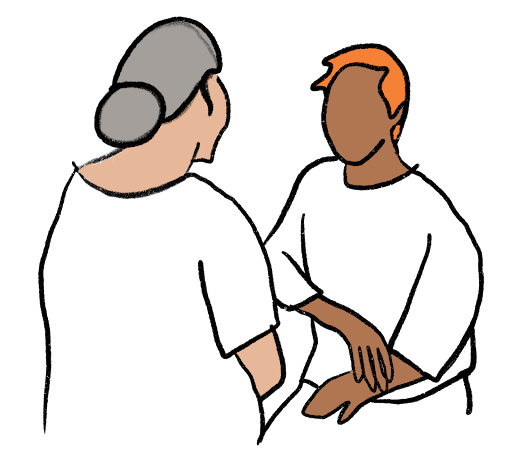
After Befriending Week 2025 I wanted to highlight some ways in which befrienders and others working to address loneliness need to be keenly aware of hearing loss as a barrier to social connection. As Helen Keller famously pointed out ‘deafness separates people from people’ and there is good evidence of a link between hearing loss and loneliness which, in turn, has such negative impacts on physical and mental health. In addition, the link between hearing loss and cognitive decline/dementia is also partly explained by the loneliness and social isolation experienced as a result of that loss.
This is an issue that will affect nearly all of us as we become older. Hearing test data shows that over the age of 50 more than three quarters of us experience at least mild hearing loss; over the age of 75 more than 50% experience at least moderate hearing loss; and by 85 that rises to over 70%. At the same time recent findings from the UK National Eye-Health and Hearing Study (UKNEHS) indicate that for millions this hearing loss is not formally diagnosed. As a result, we may not be properly factoring it into work we do with people of this age.
At Neighbourly Lab we are fortunate to currently be working with colleagues from the London Borough of Newham on a project focused on older residents with hearing loss and how their loneliness and social disconnection can be minimised. Having spent time talking to this group, here are our first thoughts on challenges and possible solutions.
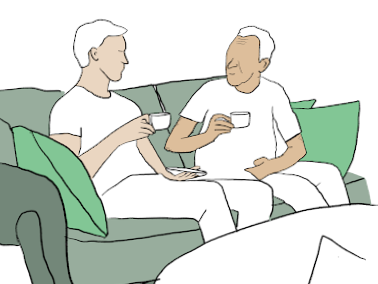
1. Encourage and enable an older person to have a hearing test so that they can access diagnosis and treatment.
Reflecting UKNEHS data, we met residents who had been unaware of their own significant hearing loss over a long period of time. Without realising, they had adapted so that they could manage in their daily lives. In other cases, hearing loss was just one of a number of issues which interfered with everyday activities so that addressing it was not necessarily a priority.
A pressing need to address mobility or other health issues can reduce motivation to chase a hard-to-get GP appointment needed for referral to an NHS audiologist who can offer free follow-up care. Even then, some residents were discouraged when GPs signposted them to a private provider where they had to pay for the ear-wax removal required before an NHS audiology test and care.
Making access to audiology services easier can help. When an NHS audiologist was on hand to chat in a sheltered housing scheme where we were working, residents were keen to chat and seek her advice.
2. Support use of hearing aids and other equipment. They can make a big difference in some contexts and for some people.
Hearing aids and other equipment can make a big difference, enabling people to take part in activities or social interactions they would not otherwise have. Bluetooth hearing aids can be paired with other devices which also help, for example, a directional microphone, a Bluetooth tv or an induction loop system. In Newham, Enabled Living offers expert advice on appropriate equipment.
However, hearing aids are not a magic bullet. We learned that it can often take a few months to get used to fitting or adjusting them; they require regular maintenance; and the digital tech required for some systems is a challenge for some people. We spoke to people who often did not use their hearing aids and others who had put them away in a drawer soon after getting them.
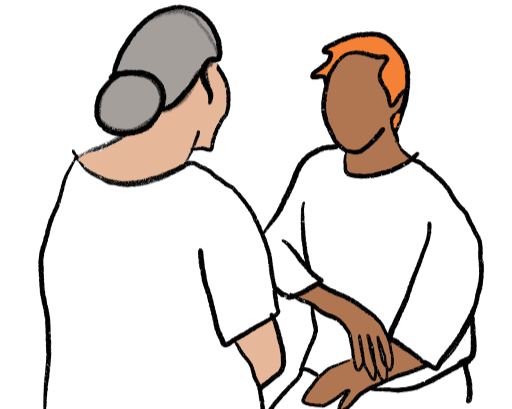
3. Keep hearing loss in mind when planning social activities and take time to understand what works best for the people you are working with.
Among the Newham residents we have spoken to, there was a spectrum from those who had close friendships and active social lives (theatre-going, singing, gardening, attending social groups) to those who were quite isolated. But even those with less social contact had existing interests or activities that they would like to do with others. It might be that a modest amount of befriending support could help them to do this. Yet the way that such social engagement is organised is crucial and the book or walking group, the meal club, the exercise class that already exist in the local area may not be welcoming in the right ways.
A frequent theme for those who did attend group activities was that being in a group was difficult. Even with hearing aids, more than two or three other people talking in a room can make it tiring and hard to keep up with conversation. This made it difficult to develop fuller, meaningful relationships with other group members even when there was a desire to get to know someone better. As a result, social groups can be lonely places for people with hearing loss. On the other hand, warm, welcoming group organisers who did accommodate communication needs made a positive difference.
In response to this issue, while working in one Newham sheltered housing scheme, we carried out research activities in very small groups with each facilitated by one of our team. And we have been working with residents to develop activities for that community – walking groups, film showings, an outing to see the festive lights – and exploring how activity type, group size, equipment and volunteer support can help to make them welcoming for those who can’t hear well. However, we know that group activities will not work for everyone: engaging one to one, perhaps in a very quiet environment, might be a more comfortable way to socialise for some.
4. Be responsive to communication needs
As this reminds us, and as in any work to address loneliness, supporting stronger relationships for those with hearing loss requires being responsive to individual needs.
Some residents talked about being reluctant to ‘make a fuss’ by flagging their hearing loss when they joined a new group and how that could mean group leaders and others failed to take time to speak and listen to them carefully which put them off attending. Any befriender or anyone running a social group needs to have hearing loss and communication needs in mind and to be sensitive to feelings of stigma about them. For example, positioning yourself so that everyone can see you when you speak, or using visual and written prompts can help.
We have also found that understanding best methods for keeping in touch between sessions is vital. While some older people with hearing loss used WhatsApp, email or phone to keep in touch, we could only get information to some residents by letter or in-person. Keeping in touch in whichever way is needed may be vital to maintaining contact and avoiding a scenario where someone becomes shut off from the outside world.
As befrienders, you are perfectly placed to listen to people with hearing loss and work with them to ensure social environments are welcoming for them. Thank you for all that you do.
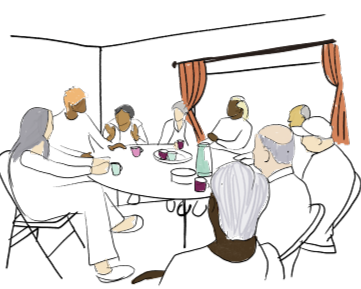
Biography
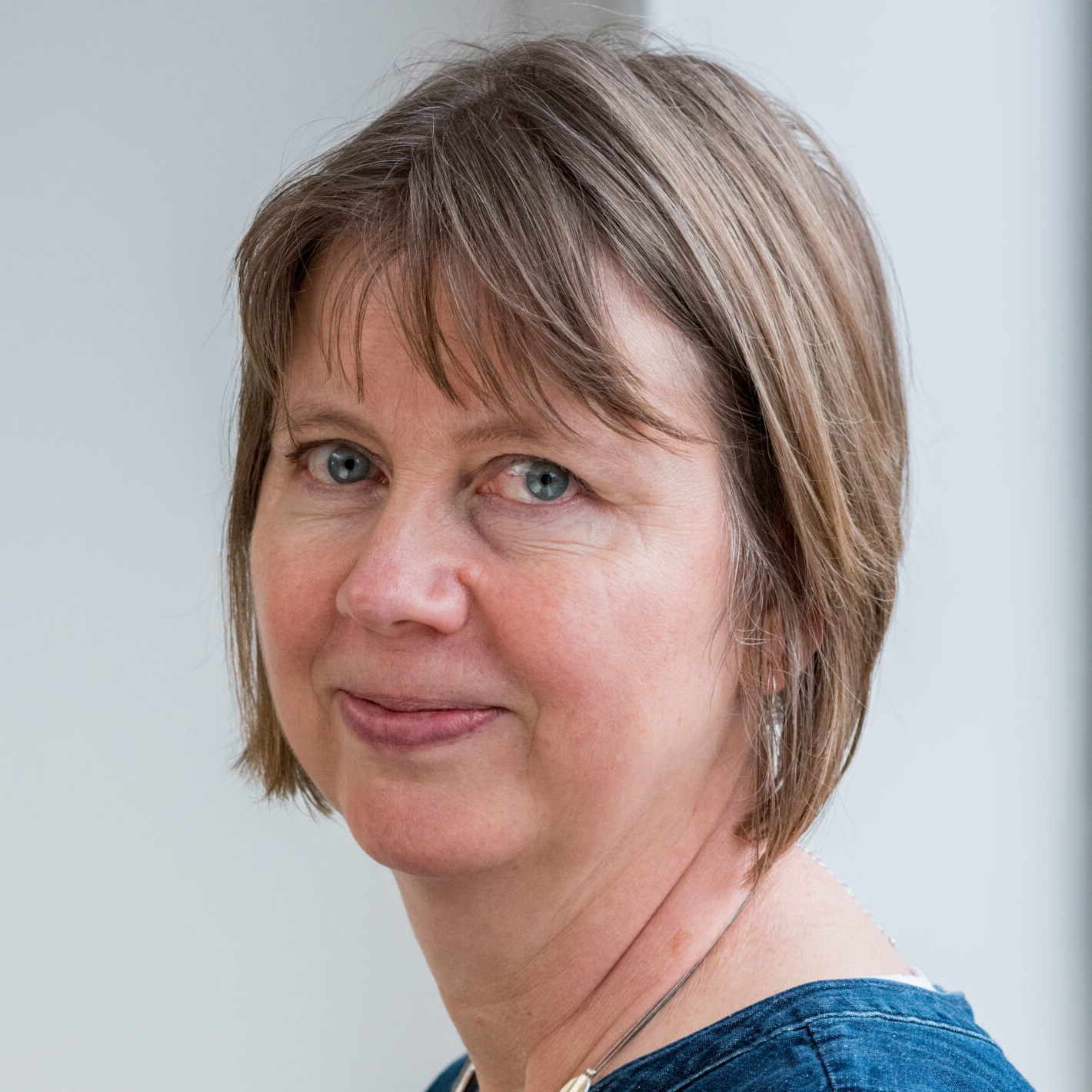
Dr Helen MacIntyre
Helen is an experienced social researcher with expertise on loneliness and social connection who has worked within and beyond academia. Her academic work has focused on children and young people’s social experience and peer relationships at school.
Helen was Head of Evidence at the Campaign to End Loneliness from 2022-24 and worked on addressing loneliness through the built environment and an evaluation of tackling loneliness interventions. Prior to that, Helen worked as Research and Learning Lead for Ageing Better in Camden, researching and writing about very practical solutions to tackling social isolation and loneliness among older people.
Recently, Helen has been involved in developing approaches for tackling loneliness in community settings, universities and schools and has also written ‘A brief guide to loneliness among young people and children at school’ with colleagues at Queen Mary University of London.

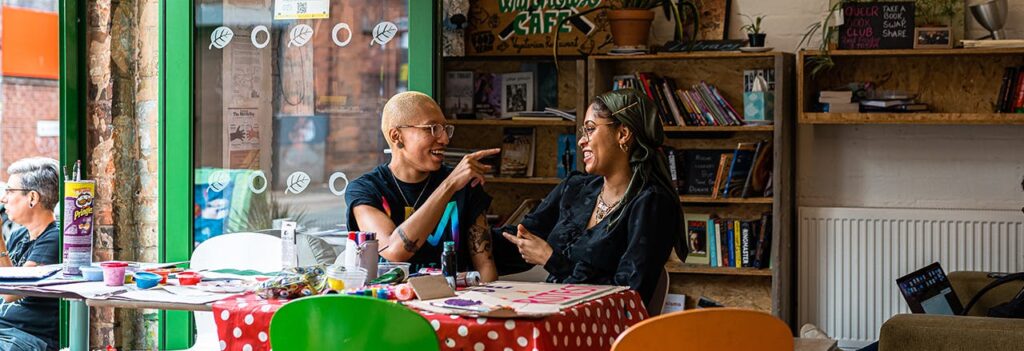



Responses